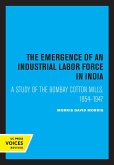Originally published in 1969. In describing the emergence of oligopoly, Professor Eichner has written a history of the American sugar refining industry, one based in part on records of the United States Department of Justice. Sugar refining was one of the first major industries to be consolidated, and its expertise was in many ways typical of the development of other industries. Eichner's focus is on the changing pattern of industrial organization. This study is based on a unique four-stage model of the process by which the industrial structure of the American economy has evolved. The first part of the book traces the early history of the sugar refining industry and argues that the classical model of a competitive industry is inherently unstable once large fixed investments are required. The more closely sugar refining approximated this model, the more unstable the model became in practice. This instability led, in 1887, to the formation of the sugar trust. The author contends that the trust was formed not to exploit economies of scale but with the intent of achieving control over prices. In the second part of the book, Eichner describes the political and legal reaction that transformed monopoly into oligopoly. This sequence of events is best understood in terms of a learning curve in which the response of businessmen over time was related to the changing institutional environment in which they were forced to operate.
Dieser Download kann aus rechtlichen Gründen nur mit Rechnungsadresse in A, B, BG, CY, CZ, D, DK, EW, E, FIN, F, GR, HR, H, IRL, I, LT, L, LR, M, NL, PL, P, R, S, SLO, SK ausgeliefert werden.









